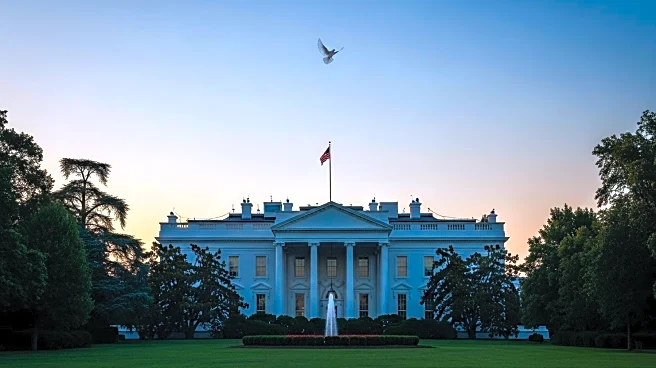What is the story about?
What's Happening?
The White House has announced a ceasefire agreement between Israel and Hamas, which includes a phased withdrawal of Israeli forces from Gaza. The agreement stipulates that Israel will pull back its troops to a predetermined line, and in return, Hamas is required to release all remaining hostages within 72 hours. This development comes amid ongoing tensions and violence in the region, with both sides having suffered significant casualties. The ceasefire aims to provide a temporary halt to hostilities and facilitate humanitarian efforts in Gaza.
Why It's Important?
The ceasefire agreement is a critical step towards reducing violence in the region and potentially paving the way for more comprehensive peace talks. The release of hostages is a significant humanitarian concern, and their return could ease tensions and foster goodwill between the parties involved. For the U.S., this agreement reflects diplomatic efforts to stabilize the region and support allies. The ceasefire could also impact U.S. foreign policy and military strategy in the Middle East, influencing future engagements and aid distribution.
What's Next?
Following the ceasefire, the focus will likely shift to monitoring the withdrawal of Israeli forces and the release of hostages by Hamas. International observers and humanitarian organizations may play a role in ensuring compliance with the agreement. The success of this ceasefire could lead to further negotiations aimed at achieving a lasting peace. However, the fragile nature of such agreements means that stakeholders must remain vigilant to prevent any violations that could reignite conflict.
Beyond the Headlines
The ceasefire agreement highlights the complex geopolitical dynamics in the Middle East, where historical grievances and territorial disputes continue to fuel conflict. The humanitarian aspect, particularly the release of hostages, underscores the human cost of these conflicts. Long-term peace will require addressing underlying issues such as border disputes, security concerns, and mutual recognition of sovereignty.

















